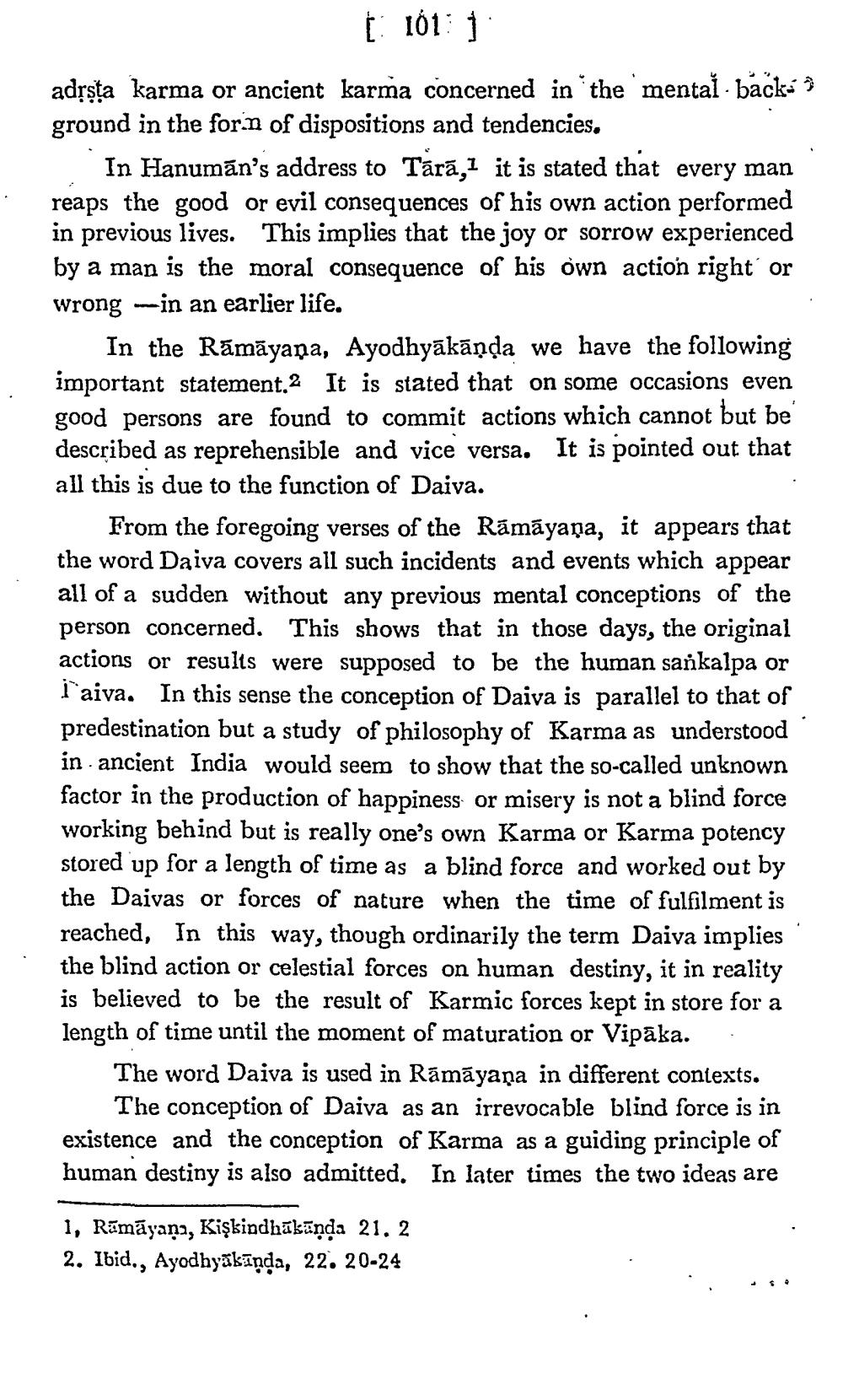________________
[ 101: 1
adrsta karma or ancient karma concerned in the mental back: 9 ground in the foren of dispositions and tendencies.
In Hanumān's address to Tārā,1 it is stated that every man reaps the good or evil consequences of his own action performed in previous lives. This implies that the joy or sorrow experienced by a man is the moral consequence of his own action right or wrong-in an earlier life.
In the Rāmāyana, Ayodhyākānda we have the following important statement.2 It is stated that on some occasions even good persons are found to commit actions which cannot but be described as reprehensible and vice versa. It is pointed out that all this is due to the function of Daiva.
From the foregoing verses of the Rāmāyaṇa, it appears that the word Daiva covers all such incidents and events which appear all of a sudden without any previous mental conceptions of the person concerned. This shows that in those days, the original actions or results were supposed to be the human sankalpa or i aiva. In this sense the conception of Daiva is parallel to that of predestination but a study of philosophy of Karma as understood in ancient India would seem to show that the so-called unknown factor in the production of happiness or misery is not a blind force working behind but is really one's own Karma or Karma potency stored up for a length of time as a blind force and worked out by the Daivas or forces of nature when the time of fulfilment is reached, In this way, though ordinarily the term Daiva implies the blind action or celestial forces on human destiny, it in reality is believed to be the result of Karmic forces kept in store for a length of time until the moment of maturation or Vipāka.
The word Daiva is used in Rāmāyaṇa in different contexts.
The conception of Daiva as an irrevocable blind force is in existence and the conception of Karma as a guiding principle of human destiny is also admitted. In later times the two ideas are
1, Rāmāyaṇa, Kişkindhūkāņda 21.2 2. Ibid., Ayodhyākāņda, 22. 20-24




